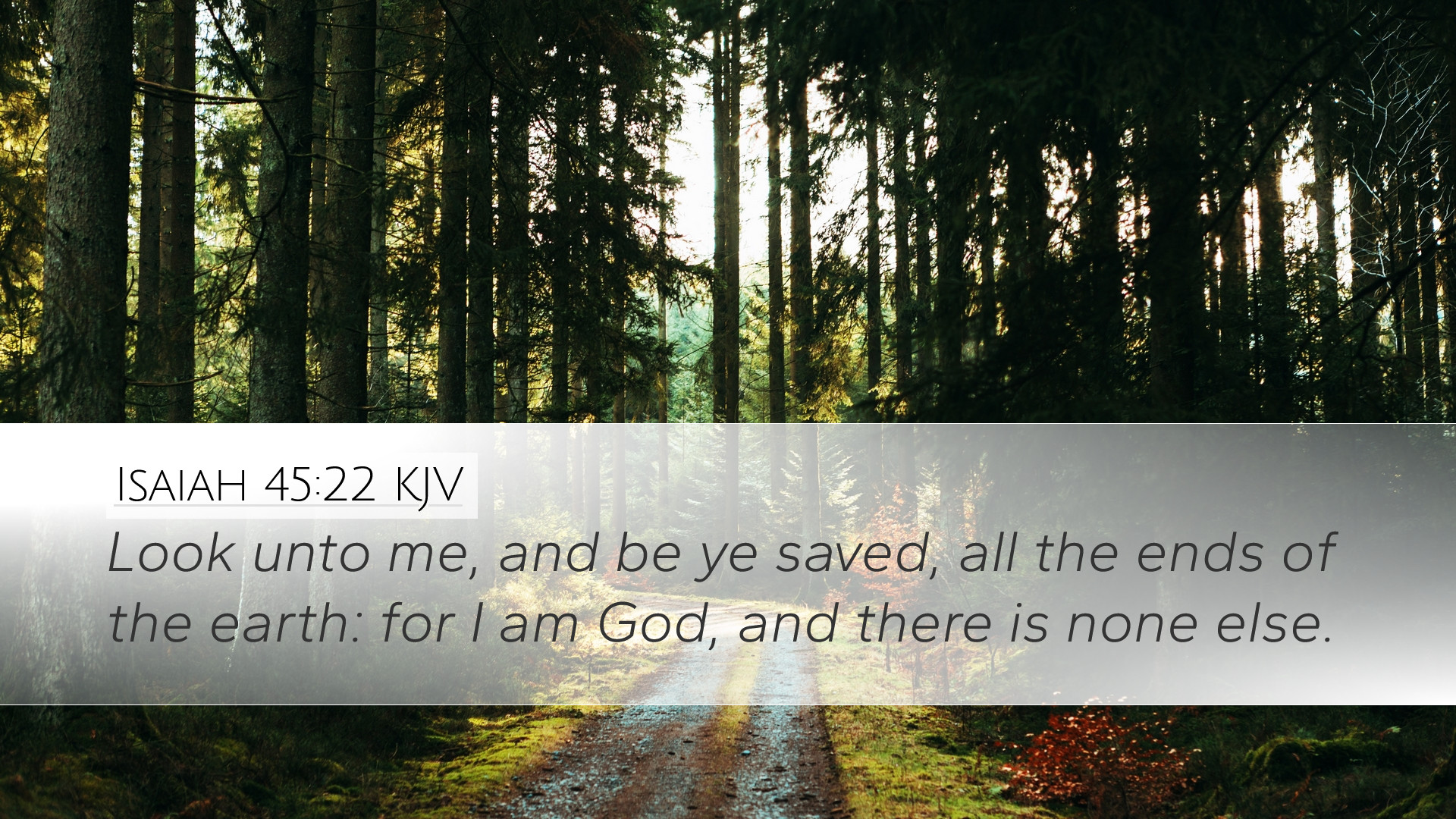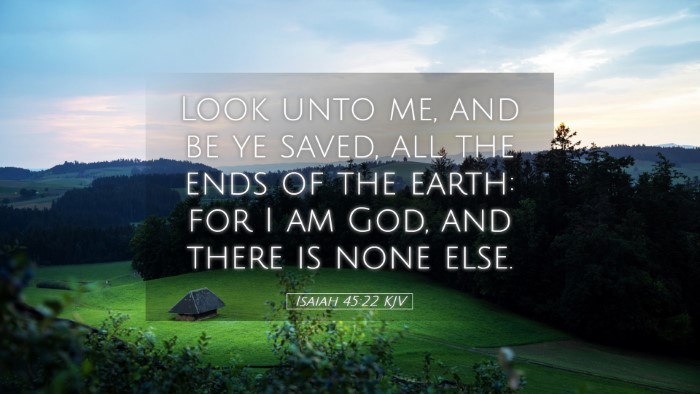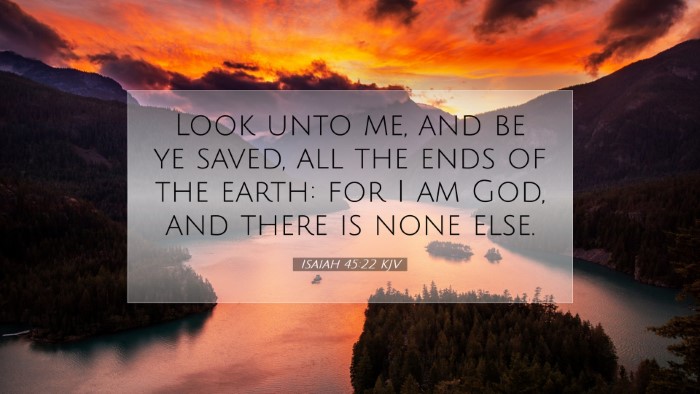Commentary on Isaiah 45:22
Verse: Isaiah 45:22 - "Look unto me, and be ye saved, all the ends of the earth: for I am God, and there is none else."
Introduction
This verse stands as a profound invitation for salvation emanating from the one true God. Within its concise structure, the weight of theological insights is immense, reflecting God's sovereign nature and His accessibility to all humanity. This commentary draws from the rich treasury of insights provided by renowned public domain scholars such as Matthew Henry, Albert Barnes, and Adam Clarke.
The Call to Look
The phrase "Look unto me" can be perceived as both a literal and metaphorical command. Matthew Henry highlights this posture of looking as an act of faith; it signifies a turning away from self-reliance and the emptiness of idolatry towards God. The imperative carries with it an urgency and a direction, rallying those who are distant from God to turn their attention towards Him.
Albert Barnes reflects on the idea that this “looking” entails faith. It implies trust and reliance upon God for salvation, reinforcing the concept that the act of looking itself is an act of acknowledging Him as the source of life and redemption. This call is directed at "all the ends of the earth," which signifies the universal scope of God's invitation for salvation.
The Universal Invitation
The words "all the ends of the earth" reveal God's desire for inclusivity. Adam Clarke emphasizes that this message is not restricted to a particular nation but extends to all peoples, affirming God’s universal lordship over creation. This aligns with the overarching theme of the Bible that the God of Israel is also the God of the Gentiles; His love and grace transcend cultural and geographical boundaries.
- Through this inclusiveness, the text proclaims God’s desire for redemption for every individual, echoing the Great Commission in Matthew 28:19.
- This verse also serves as a prophetic reminder of the coming of Christ, who would be the ultimate fulfillment of salvation for all humanity.
The Nature of God
The declaration "for I am God, and there is none else" asserts the uniqueness and sovereignty of God. Matthew Henry expounds on this by noting that this assertion not only affirms monotheism but also the exclusive nature of God’s power to save. It establishes a clear distinction between the Creator and the created, reinforcing the futility of worshiping false gods.
Albert Barnes adds that this statement serves as a foundation for faith. Knowing that there is no other savior reinforces believers' trust in God alone. This also challenges the ideologies of the time, where multiple gods were worshipped, countering such beliefs with a profound declaration of God's singularity.
Theological Implications
This verse holds significant theological weight. It presents a robust doctrine of salvation. Adam Clarke offers insights into the connection between divine sovereignty and human obligation. The act of "looking" suggests human responsibility; while salvation is of the Lord, individuals are called to respond in faith.
- This highlights the divine initiative in salvation—God calls, and humanity responds.
- The verse reflects the mystery of the divine-human relationship, balancing God’s sovereignty with human desire for salvation.
Practical Applications
For pastors and theologians, Isaiah 45:22 bears profound implications for ministry and evangelism. The call to "look unto me" is a powerful motif for preaching the Gospel. Matthew Henry emphasizes that we should invite individuals to trust in God, presenting the simple, yet profound, act of looking as a means to encounter the divine.
Albert Barnes urges modern believers to remember this inclusivity in their personal evangelism, reminding them that God's offer of salvation reaches everyone. In ecclesiastical settings, this verse encourages the church to remain vigilant in sharing the Gospel across cultures and communities.
- In theological discourse, this verse offers a platform to explore the nature of faith, divine sovereignty, and God's persistent call to humanity.
- This can be transformative in understanding how to counsel individuals struggling with feelings of unworthiness or distance from God.
Conclusion
Isaiah 45:22 is rich with meaning and theological insight. It encapsulates God's universal call for salvation while affirming His uniqueness and sovereignty. For scholars, theologians, and pastors alike, it serves as a clarion call to reflect upon the nature of faith, the character of God, and the expansive reach of His grace. As such, we are reminded that salvation is not merely a future hope but a present reality, available to all who would look upon Him in faith.


